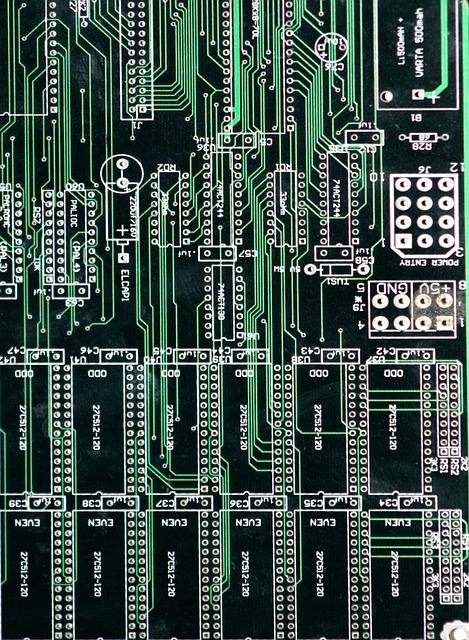# AI Technology: Driving Innovation and Shaping the Future of Industries Across the Globe
Artificial Intelligence (AI) has emerged as a transformative force in the modern world, fundamentally altering the landscape of industries and redefining the way businesses operate. From healthcare to finance, and from manufacturing to retail, AI technologies are not just enhancing existing processes but are also creating entirely new paradigms of efficiency, innovation, and customer engagement. This article delves into the multifaceted impact of AI on various industries, highlighting its role as a catalyst for innovation and a cornerstone for future developments.
## Revolutionizing Healthcare
In the realm of healthcare, AI is revolutionizing patient care and operational efficiency. Machine learning algorithms are increasingly being utilized to analyze vast amounts of medical data, enabling healthcare providers to make more informed decisions. For instance, AI systems can process medical images with remarkable accuracy, assisting radiologists in identifying anomalies that may be missed by the human eye. This capability not only speeds up diagnosis but also enhances patient outcomes through early detection of diseases such as cancer.
Moreover, AI-driven predictive analytics is proving invaluable in managing patient care. By analyzing historical data, AI can forecast patient admission rates, thereby allowing hospitals to allocate resources more effectively. Such predictive capabilities are particularly crucial in emergency situations, where timely interventions can save lives. Additionally, AI chatbots are transforming patient interactions, providing immediate responses to inquiries and streamlining appointment scheduling, which ultimately enhances the patient experience.
In the pharmaceutical sector, AI plays a pivotal role in drug discovery and development. Traditional methods of drug development are often time-consuming and costly. However, AI can analyze chemical compounds and predict their efficacy, significantly shortening the research timeline. Companies like Atomwise are using AI to identify potential drug candidates by simulating how different molecules interact with specific diseases. This innovative approach not only accelerates the discovery process but also reduces the financial burden associated with bringing new drugs to market.
## Transforming Financial Services
Financial services are undergoing a seismic shift, driven by the integration of AI technologies. The ability of AI to analyze vast datasets in real-time is enhancing risk assessment and fraud detection. Financial institutions are deploying machine learning models to identify unusual patterns in transaction data, enabling them to flag potentially fraudulent activities more effectively than traditional methods. This proactive approach not only protects consumers but also bolsters the integrity of the financial system as a whole.
Furthermore, AI is reshaping customer service within the financial sector. Chatbots and virtual assistants are increasingly being utilized to handle customer inquiries, providing instant support around the clock. These AI-driven tools can manage a wide range of tasks, from answering basic questions about account balances to providing personalized financial advice. By automating routine interactions, financial institutions can allocate their human resources to more complex tasks, ultimately enhancing overall service quality.
Investment management is also being transformed by AI technology. Robo-advisors, powered by sophisticated algorithms, are democratizing access to investment advice. These platforms analyze individual financial situations and risk appetites to provide tailored investment strategies, making wealth management accessible to a broader audience. As a result, traditional investment firms are re-evaluating their business models to compete with these agile, technology-driven services.
## Enhancing Manufacturing and Supply Chain Management
Manufacturing is another sector experiencing profound changes due to AI technology. Smart factories are emerging as a result of integrating AI with the Internet of Things (IoT). These facilities utilize sensors and connected devices to gather real-time data on production processes, which AI systems analyze to optimize operations. Predictive maintenance is one such application, where AI predicts equipment failures before they occur, minimizing downtime and maintenance costs.
In addition to improving operational efficiency, AI is also enhancing supply chain management. By analyzing data from various sources, such as weather patterns, market trends, and consumer behavior, AI can forecast demand with remarkable accuracy. This capability allows manufacturers to adjust production schedules proactively, reducing excess inventory and associated costs. As globalization continues to complicate supply chains, the agility provided by AI is becoming increasingly essential.
Moreover, AI-driven automation is reshaping workforce dynamics in the manufacturing sector. While concerns about job displacement are valid, AI is also creating new opportunities for skilled workers. The demand for professionals who can design, implement, and maintain AI systems is on the rise, prompting educational institutions to adapt their curricula to meet these needs. As a result, the workforce is evolving, with an emphasis on collaboration between humans and machines to drive productivity.
## Conclusion: The Future of AI Across Industries
The overarching influence of AI technology on various industries is undeniable. As businesses continue to embrace AI, the potential for innovation and efficiency will only expand. Companies that prioritize the adoption of AI will likely gain a competitive advantage, positioning themselves as leaders in their respective fields. However, ethical considerations surrounding AI deployment must also be addressed. As AI systems become more integrated into daily operations, ensuring transparency, accountability, and fairness will be paramount.
Looking ahead, the future of AI technology is bright, with advancements in natural language processing, computer vision, and machine learning poised to unlock new possibilities. As industries evolve, the ability to harness AI effectively will determine not only the success of individual companies but also the overall trajectory of economic growth and societal advancement. Embracing this technology will be crucial for organizations seeking to navigate the complexities of a rapidly changing world, ultimately shaping the future of industries across the globe.











